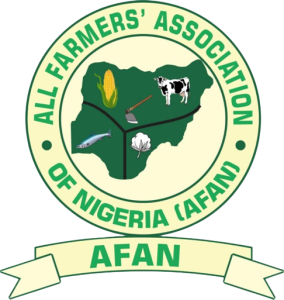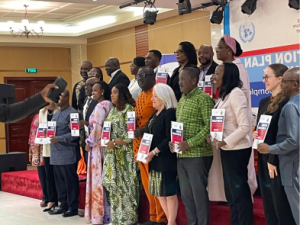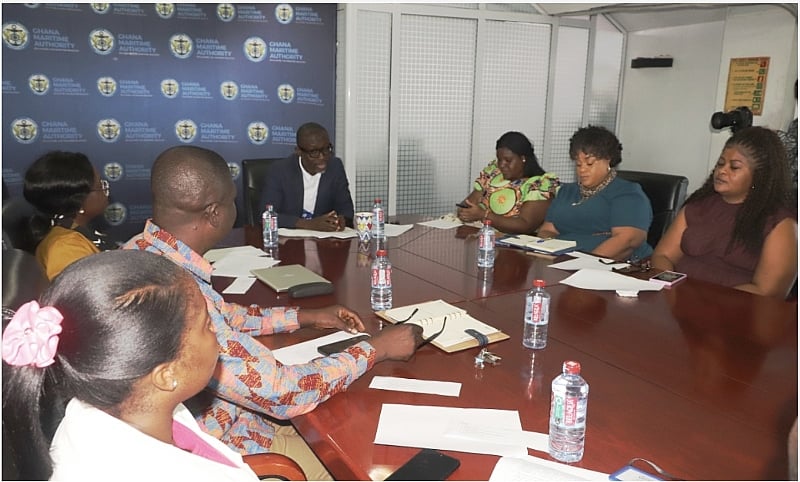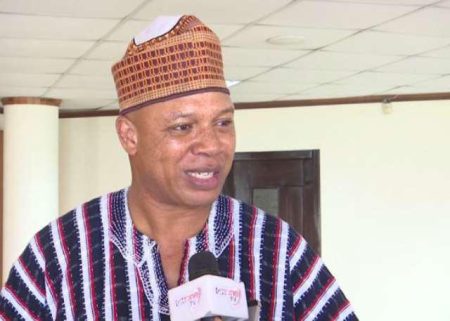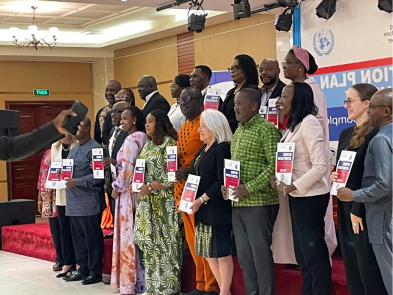Ghana’s journey towards full compliance with the International Labour Organization’s (ILO) Convention 188 on Work in Fishing is progressing steadily, with authorities aiming for complete adherence by October 2025. This convention, which became effective globally in 2017, mandates decent working conditions, suitable living arrangements, and insurance coverage for all fishers. Ghana’s commitment to this convention, ratified in August 2024, was proactively initiated in 2022, thanks to the ILO’s 8.7 Accelerated Lab Project. This project facilitated collaboration among regulatory bodies, fishing vessel operators, and fishers themselves to establish the Work in Fishing Committee, a crucial body for driving the implementation of the convention. The Ghana Maritime Authority (GMA) plays a central role in this process, issuing Maritime Labour Certificates to vessels that successfully meet the stipulated labour standards. Currently, substantial progress has been made, with many of the initial concerns addressed, paving the way for anticipated full compliance by October 2025.
A key element of Ghana’s implementation strategy is the phased approach adopted for different categories of fishing vessels. Initially focusing on industrial vessels measuring 24 meters and above, the implementation plan will subsequently encompass canoes and smaller fishing boats. This ensures comprehensive coverage of the fishing sector, extending the benefits of the convention to all fishers, regardless of the size of vessel they operate. This comprehensive strategy reflects Ghana’s commitment to improving the working and living conditions of all individuals engaged in the fishing industry. This phased roll-out allows for focused implementation and adjustment based on the specific challenges and requirements of each vessel category.
The implementation of the convention has already yielded tangible improvements for Ghanaian fishers. Mandatory written contracts, negotiated and approved salary structures, pre-departure vessel inspections, and the provision of crew cabins are now enforced, significantly enhancing working conditions and safety at sea. Furthermore, a crucial shift towards formalizing payment processes has been achieved. The previous practice of informal “on-table” cash payments has been replaced by mandatory bank transfers, ensuring transparency and financial security for fishers. These advancements mark a significant step forward in protecting the rights and well-being of those working in the fishing industry.
The enforcement and monitoring of these regulations rely on a combination of traditional inspections and a novel, fisher-led reporting system. This innovative approach empowers fishers to actively participate in ensuring their rights are upheld. They can document any discrepancies or violations through videos and submit them directly to the maritime labour inspectors. This direct reporting mechanism allows for swift action upon a vessel’s arrival, rectifying any non-compliance issues before its departure. This collaborative approach strengthens the overall effectiveness of the implementation process, ensuring that the improvements are felt on the ground.
Overseeing the implementation process is the Work in Fishing Tripartite Committee, a collaborative body comprising representatives from various stakeholders. Regulators like the Ghana Maritime Authority, the Fisheries Commission, and the Labour Department work alongside worker representatives from the National Union of Seamen, Ports and Allied Workers (NUSPAW) and the Maritime and Dockworkers Union (MDU). The employers’ perspective is represented by the Ghana Tuna Association and the Ghana Industrial Trawlers Association. This tripartite structure fosters continuous dialogue and cooperation, ensuring that the implementation of the convention remains effective and relevant to the realities of the fishing industry.
While the convention has undeniably brought about positive changes for fishers, it also presents certain challenges for the industry, particularly concerning costs. Implementing the necessary upgrades to vessels, providing training for seafarers, and meeting other requirements come at a significant financial burden. The industry also grapples with the loss of trained seafarers to international opportunities, particularly to the UK, after they receive their certifications in Ghana. This brain drain further adds to the challenges faced by local fishing companies. To address these issues, the industry has proposed localizing certification processes, potentially reducing the outflow of skilled workers and creating a more sustainable workforce within the Ghanaian fishing sector. Furthermore, there’s a call for government support, similar to the grants provided to foreign companies, to assist local firms in managing their vessels and navigating the increased operational costs associated with compliance. This proposed support would help level the playing field and ensure the long-term viability of the Ghanaian fishing industry.


